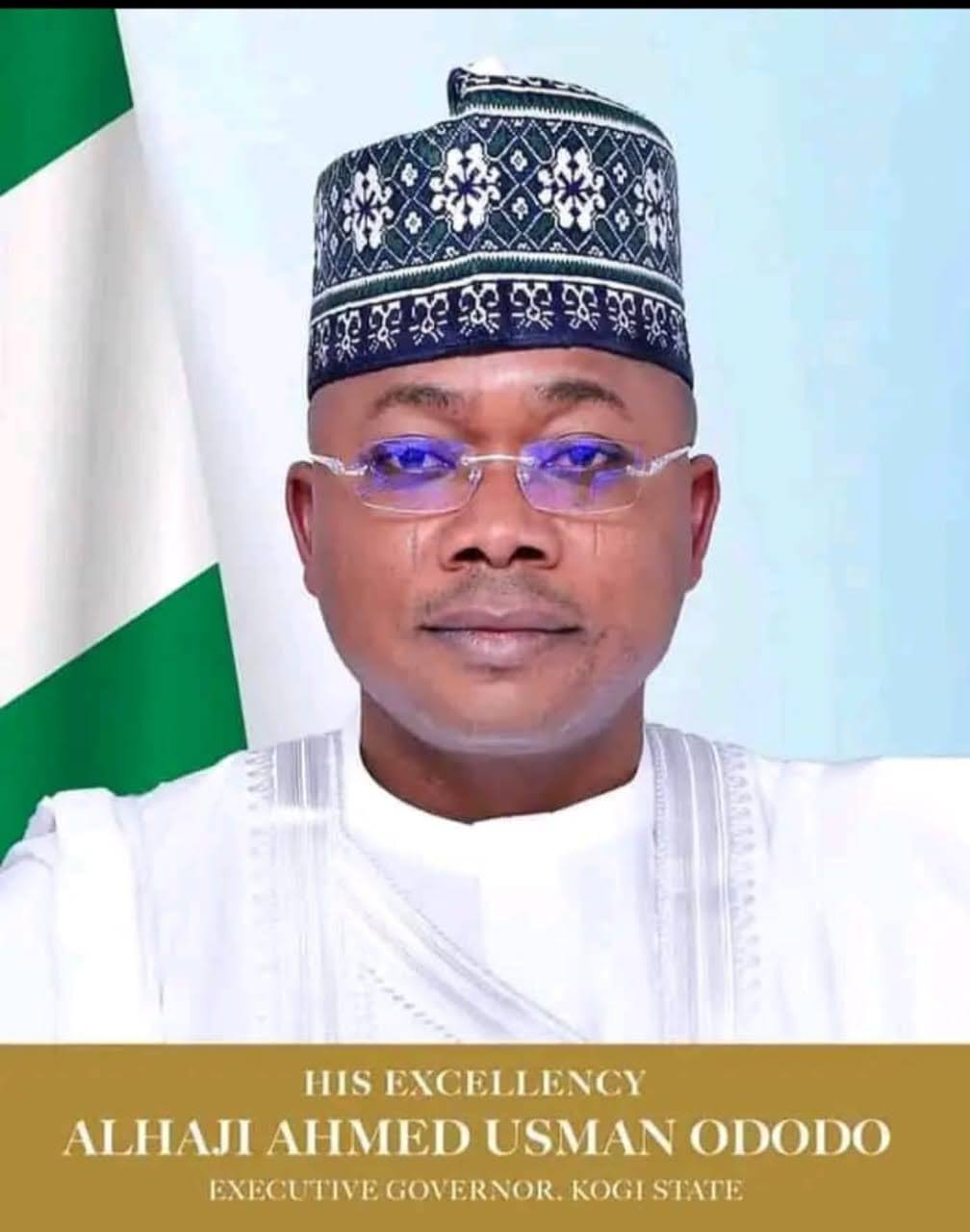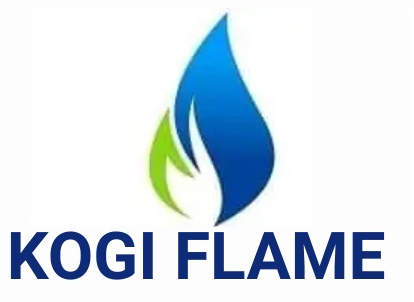
kogiflame.com
The Chief Judge of Kogi State, Justice Nasir Ajanah, has been having a running battle with the executive and the legislative arms of government in the state with the lawmakers recommending his removal. YINKA OLADOYINBO looks at the issues surrounding the ensuing judicial crisis in the state.

By YINKA OLADOYINBO
Justice Nasir Ajanah, the Chief Judge of Kogi State, has been in the eye of the storm in the last couple of months as his position as the number one judge in the Confluence State is being threatened following a face-off between the executive arm of government and the judiciary on one hand and the legislative arm and the judiciary on another hand. Already, the state House of Assembly has recommended to the executive that he should be shown the way out because of an alleged gross misconduct.
The travails of Ajanah became a public knowledge when members of the state chapter of the Judiciary Staff Union of Nigeria (JUSUN) decided to boycott the table payment system adopted by the state government for payment of salaries of its workers. The government had become worried that, in spite of series of staff verification exercises it embarked upon, which lasted several months, the main objective of reducing its wage bill could not be achieved. The more the screening exercises continued, the more it became difficult for the total amount being spent on wages to reduce as expected.
Following the discovery, the state government had, last August, directed that every worker should be paid his or her salary through personal appearance, which again appeared to be another round of screening aimed at ascertaining the actual state work- force. The directive however generated controversies as the workers in the judiciary arm of government said they would not participate, arguing that they are working for a distinct arm of government that should not be taking directives from another arm.
They further said they had never been part of the screening exercises organised by the state government, wondering why the executive insisted that they should come forward for physical payment of salary. The chairman of the state chapter of JUSUN, Emmanuel Waniko, had stated that the state government’s decision to embark on table payment of part of the arrears of salaries owed the workers was not acceptable.
Waniko also argued that the government’s refusal to implement an upward review and timely remittance of the age-long monthly subvention due to the state judiciary could worsen the looming crisis between the union and the three levels of court in the state.
According to him, the combined management of the state’s High Court, Sharia Court of Appeal and Customary Court of Appeal was reportedly requested by the union to explain the modalities and time of payment of the five-month outstanding salaries owed staff of the judiciary. The union however frowned at the attempt by the executive to muscle the state’s third arm of government against the constitutional provisions that guarantees the financial independence of the judiciary.
For the Kogi JUSUN chairman, the development contravenes the recent legislative amendment to the constitution assented to by President Muhammadu Buhari and was aimed at strengthening the financial autonomy of state judiciaries and legislatures.
Prior to the introduction of the table payment arrangement, the executive was said to have stopped the monthly subvention of the judiciary which had led to the non-payment of the salary of workers in that arm of government. The workers consequently embarked on an industrial action to press home their demands as their salary was outstanding for about four months. The strike action had made the courts in the state to be locked for almost five months now.
The government was said to have made several entreaties to Justice Ajanah to prevail on the workers to come forward for the table payment but the Chief Judge was said to have sided with his people on their stand that the judiciary is not an appendage of the executive. The development made the executive, through the Secretary to the State Government (SSG), Mrs Folasade Ayoade, to write to the state legislature, asking the lawmakers to intervene in the looming crisis.
In the letter to the state House of Assembly, read by the Speaker, Matthew Kolawole, the SSG revealed that she had written a letter on 14 November, 2018, informing Ajanah of a request for the state judiciary’s payroll in preparation for table payment and pay parade exercise. But the Chief Judge replied, via a letter dated 16 November, 2018, declining the request on the ground, among others, that it impugned the independence and autonomy of the judiciary.
According to Mrs Ayoade, the stance of the state Chief Judge negated the earlier stand of the state House of Assembly of encouraging civil servants working in the legislature to participate in the exercise. She said the principle of Separation of Powers (SOP) stipulated that civil servants working in the state judiciary could not appear in their own workplace for the purpose of physical identification and collection of biometric data for the state integrated data base of its workers.
She said efforts she made to reach out to JUSUN to assure them of priority attention enjoyed by the state legislature and accord them same expeditious and respectful manner, were rebuffed.
The development made the state House of Assembly to set up a six-man committee, headed by the Majority Leader, Hassan Abdullahi, to interface with the judiciary and report back within a week.
However, sensing the trend of the events and the likely steps that can be taken by the executive and the legislature, the judiciary approached the state High Court, sitting in Koton Karfe, to seek for an injunction restraining the legislature from taking any step that may affect the Chief Judge and the Chief Registrar of the court, Yahaya Adamu, from performing their constitutional duties. The court, presided over by Justice Alaba Ajileye, granted the prayers of the applicants and this prevented the lawmakers from proceeding with activities brought about by the letter of the SSG.
As the Chief Judge was about to heave a sigh of relief and enjoy the peace that was occasioned by the injunction, the legislature came up with another joker that caught many of the followers of events in the state unawares. The lawmakers, at their sitting on April 3, 2019, received the report of the House Public Accounts Committee that looked into the financial dealings of some government organs and agencies.
Unfortunately for the Chief Judge, the judiciary was one of the organs that were investigated. At the end of the sitting, the state House of Assembly concluded that the judiciary was guilty. Chairman of the public accounts committee of the House, Alhaji Ahmed Mohammed, while presenting the report to the executive, said the Chief Judge should step aside to defend himself over his alleged indictment by the Auditor-General of the state.
According to Mohammed, the committee was set up at the plenary sitting of the House on December 24, 2018, in line with Section 103 of the Constitution of the Federal Republic of Nigeria 1999 (as amended). He said the state judiciary was said to have, in December 2016, spent its budget above the approved limits provided in some sub-heads as contained in the 2016 Appropriation Law to the tune of N7, 574, 850 without the approval of virement application.
He said: “It was also reported by the state Auditor-General that Kogi State High Court made huge cash withdrawal to the tune of N137, 607,334.11). The cash was withdrawn from High Court Bank account in the year under review. This transaction breached the provisions of chapter 6, regulation 632 which stipulates that “the use of cash for payment is hereby prohibited.”
The committee therefore, recommenced the removal of the Chief Judge for alleged gross misconduct or in the alternative he should step aside, pending his appearance before the House Committee on Public Accounts to defend himself.
Expectedly, the action of the lawmakers has been generating ripples in the state with many saying that the state government was only using the legislature to get at the Chief Judge as it appeared that the executive wanted Ajanah out of office at all cost.
Observers also argued that there was more to the executive/judiciary face-off than meet the eyes, particularly when the governor and the Chief Judge are of the Ebira extraction from the same Kogi Central Senatorial District of the state.
Speaking on the involvement of the legislature in the logjam, Speaker of the state House of Assembly, Kolawole said the legislative body can never be used by an arm of government to fight another arm of government. He said the report of the auditor-general had indicted the judiciary for spending more than the amount appropriated to it by the house.
He further explained that the public accounts committee of the house invited the Chief Judge on three occasions to defend the allegations but he refused to honour the invitations. He said such action, under the constitution, amounted to gross misconduct, saying it was one of the offences for which a chief judge could be removed from office. Kolawole noted that the legislature did not flout any court order by going ahead with the activities of the committee on public accounts, saying the issue was never before any court of competent jurisdiction.
According to the Kogi Assembly speaker, the issue that was taken before the Koton Karfe court by the embattled Chief Judge was the one that originated from the letter written to the SSG, seeking the intervention of the legislature in the impasse.
Again, not prepared to be caught napping, the Chief Judge and the Chief Registrar instituted another suit at the same Koton Karfe court, seeking the nullification of the resolution of the state House of Assembly. He argued that the resolution was arrived at in defiance to a subsisting order of the court. In a motion filed by their counsel, Adegboyega Awomolo SAN, the duo said the recommendation should be quashed as it was illegal, null and void.
Awomolo said the Motion on Notice HC/KK02M/201 was brought, pursuant to Order 11, Rules 1 and 2 of Kogi State High Court (Civil Procedure) Rules, 2006, to counter the action of the state legislature in defying the court order in the impasse between the legislative and the executive arms. The motion has Kogi State House of Assembly, Speaker of the House, Matthew Kolawole,
Honourable Bello Hassan Abdullahi, chairman of the ad-hoc committee; governor of Kogi State and the Attorney-General of the state as defendants.
According to the plaintiffs, the House of Assembly went ahead to sit and issue a resolution on the matter, despite the pendency of Suit NO. HC/KK/11CV/2018 and an interim injunctive order of the court. They prayed for an order of the court nullifying and setting aside the resolution passed by the House at its plenary sitting of 2 April, 2019, in defiance of the pendency of the suit.
The claimants also brought the motion on the grounds that the purported resolution of the first-third defendants was made during the pendency of the suit and a subsisting order of the court restraining the defendants from taking any steps in respect of the substantive matter. However, on 12 April when the motion was to be moved, the court had to postpone its sitting on the matter indefinitely, based on the pervading security situation around the court premises.
The attempt to remove the Chief Judge of Kogi State is another avenue to test the provisions of the 1999 Constitution (as amended) on the removal of judicial officers. Section 292 (1) of the constitution provides that “A judicial officer shall not be removed from his office or appointment before his age of retirement except in the following circumstances: (a) in the case of –
(i) Chief Justice of Nigeria, President of the Court of Appeal, Chief Judge of the Federal High Court, Chief Judge of the High Court of the Federal Capital Territory, Abuja, Grand Kadi of the Sharia Court of Appeal of the Federal Capital Territory, Abuja and President, Customary Court of Appeal of the Federal Capital Territory, Abuja, by the president acting on an address supported by two-thirds majority of the Senate;
(ii) Chief Judge of a state, Grand Kadi of a Sharia Court of Appeal or President of a Customary Court of Appeal of a state, by the governor acting on an address supported by two-thirds majority of the House of Assembly of the state-praying that he be so removed for his inability to discharge the functions of his office or appointment (whether arising from infirmity of mind or of body) or for misconduct or contravention of the Code of Conduct;
(b) in any case, other than those to which paragraph (a) of this subsection applies, by the president or, as the case may be, the governor acting on the recommendation of the National Judicial Council (NJC) that the judicial officer be so removed for his inability to discharge the functions of his office or appointment (whether arising from infirmity of mind or of body) or for misconduct or contravention of the Code of Conduct.”
It is expected that the processes on the removal of Ajanah as the Chief Judge of Kogi State would have to be brought before the NJC, a body that is constitutionally empowered to recommend the removal of any judicial officer to either the president or the governor as the case may be.
Culled from Nigerian Tribune









